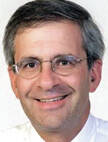All but lost in the cacophony of the news of last week — continued fighting in Ukraine, continued economic worries, continued strife over abortion — were three of the most important sentences of the season. They came at the end of a 1,300-word speech that began “Happy Sunday!” and addressed a remarkable range of subjects from fishing to religious faith to what the speaker described as “a macabre regression of humanity.”
These three vital sentences were uttered by Pope Francis, and they deserve some contemplation, perhaps even prayer. The subject was press freedom. Here are those remarks:
“I pay homage to journalists who pay with their lives to serve this right. Last year, 47 journalists were killed worldwide, and more than 350 were imprisoned. Special thanks go to those who courageously inform us of the wounds of humanity.”
The current pontiff isn’t possessed of infallible judgment; last week he suggested the Russian invasion of Ukraine might be motivated by NATO’s westward expansion. But in his remarks about journalism, he recognized there have been occasions in human history when the bishop of Rome must speak of universal truths or, in this case, of the value of the truth.
This is one of them. Despite the talk about “fake news,” often promulgated by purveyors of fake news themselves, and the complaints that journalists feast on bad news, Francis saw clearly that journalists “courageously inform us of the wounds of humanity.”
It’s true that the Vatican has not been faultless in this endeavor. At a time when society was suffering some of its gravest wounds, Pius XII was silent, or couched the truth in language so opaque that he helped shield those in fascist Italy and Nazi Germany from seeing how their regimes were promulgating matchless wounds of humanity. All this is set out in a remarkable new book, “The Pope at War: The Secret History of Pius XII, Mussolini and Hitler” by Brown University historian David I. Kertzer, to be published in a month. Pius spoke obliquely about peace as a “sublime heavenly gift that is the desire of all good souls.” The truth was more complicated than that. It always is.
His successors have recognized that, and have spoken more forthrightly about the value of truth and, specifically, of journalism’s tireless, relentless pursuit of truth.
In the past several decades, challenges to the truth have come from dictators and presidents, and from petty local officials whose insecurity led them to close meetings that should have been open and suppress documents that should have been public.
People in power seldom recognize the value of journalism, though one of the customs of the otherwise suspect Washington press dinners is to skewer the press and then to acknowledge its value.
Sen. John F. Kennedy did some skewering in 1958: If elected president, he said, “all reporters can go to Communist China without official protection — in fact, I’m drawing up now a list of those I want to go first.” This spring, President Joe Biden did some acknowledging, deploring a world with “disinformation massively on the rise, where the truth is buried by lies and the lies live on as truth.” Then he added:
“What’s clear — and I mean this from the bottom of my heart — that you, the free press, matter more than you ever did in the last century.”
John Paul a half-century ago offered a truth that endures for all of us in this profession:
“The service of truth, the service of humanity through the medium of the truth — is something worthy of your best years, your finest talents, your most dedicated efforts.”
To which all of us, regardless of faith, might say: Amen.
David M. Shribman is the former executive editor of the Pittsburgh Post-Gazette. Send comments to [email protected].





